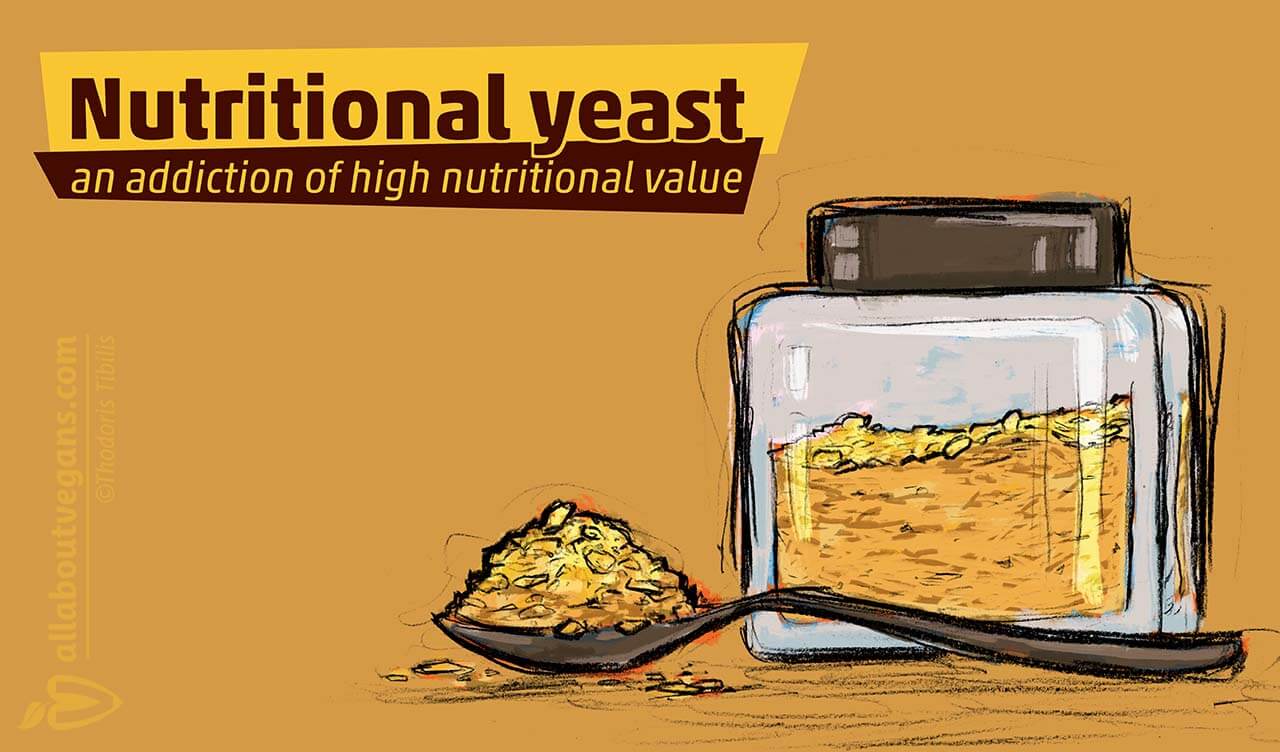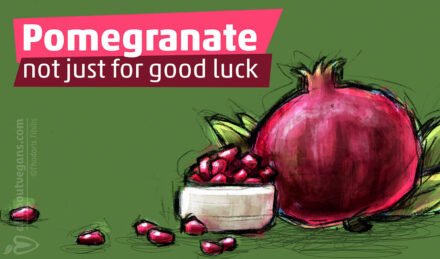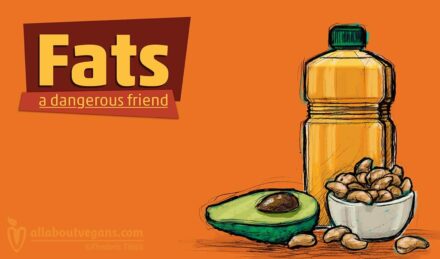Fungi
Fungi are generally an odd and, at the same time, marvelous category of organisms, since they can't be classified as plants nor as animals. They can be pathogens, such as Candida or dermatophytes, so many are worried about their hearing alone. The majority of fungi, however, are non-pathogenic. We find them on the walls of our homes (the blacks we call moisture-resistant, Aspergillus - a typical fungus species) and free in nature (mushrooms). Many are edible and even quite expensive, while human lives saved by fungi are millions. Don't believe it? Penicillin and many other antibiotics are made from fungi!
This post contains affiliate links. If you make a purchase, we get a percentage, at no extra cost to you. As an Amazon Associate, allaboutvegans.com earns from qualifying purchases.
Therefore, a lot of fungi are extremely beneficial to humans, despite their bad reputation. So let's get to know a very special representative of them, the nutritional yeast.
What is nutritional yeast?
We all know the word yeast, since we know its utility in the production of pastries, beer, and many other foods or beverages. The nutritional yeast is the most modern version of the amazing Cerevisiae Sugar Mushroom, which has become inactive with special treatment, after growing in molasses or beets for about a week.
It's the "cheese" of vegans which, in addition to its excellent taste, offers plenty of nutrients. It's a gluten-free product and is often sold with B12 enrichment. We may find it as a powder or in the form of flakes.
Nutritional benefits
The nutritional value of nutritional yeast is great. Specifically:
- It's a rich source of B vitamins, with their known positive effects on our health. This, of course, varies depending on the manufacturer, since the B12 is artificially added. Studies made on vegans found that one tablespoon of fortified nutritional yeast daily restored vitamin B12 levels in people with deficiency.
- It contains high concentration of minerals and trace elements.
- It's source of proteins (3 tablespoons contain 8 grams of protein).
- It contains fibers, such as beta-glucans (edible substances).
- It contains antioxidants that protect the DNA, lower cholesterol and boost the immune system. One study found that men with high cholesterol who consumed 15 grams of beta-glucan, through nutritional yeast, daily for eight weeks lowered their total cholesterol levels by 6%.
- It's low-fat.
- It has a probiotic action and protects the normal intestinal microflora.
Rich flavor, almost addictive
Despite its nutritional properties, the main reason it is used so much is its intensively cheesy taste. Savory, it's the ultimate substitute for cheese. It owns its taste to glutamic acid (an amino acid found naturally in many foods, such as soy, vegetables, mushrooms, etc.), for which there are some studies that claim it has addictive properties. This claim is based on the similarity of the glutamic acid, contained in the nutritional yeast, with the glutamine mononitrate of other foods (mainly processed ones), for which studies have shown some evidence of an addictive effect. I think this is a bit of an exaggeration, but more research will further illuminate the situation.
My own experience (which is not scientifically strong), tells me that its deliciousness has made it almost essential in my daily vegan cooking. I use it everywhere.
Now that I think about it I probably really am addicted.
How is it maintained?
Its main enemy is moisture. It must, therefore, be maintained dry, well-sealed, in a, preferably, dark place. So we choose airtight containers which better not be transparent.
Nutritional value
| Energy | 388kcal |
| Protein: | 51.1gr |
| Carbohydrates: | 36.9gr |
| of which fiber: | 22.0gr |
| Fat: | 4.0gr |
| of which saturated: | 0.7gr |
| Sodium: | 0.07gr |
| B12: | 44mcg (depends of course on the amount of enrichment) |
| Thiamine B1: | 45mg |
| Pantothenic Acid: | 140mg |
| Folic acid: | 4400mcg |
| Vitamin B6: | 34mg |
| Riboflavin B2: | 18mg |
| Zinc: | 120mg |
Ideas for using nutritional yeast in vegan cuisine
The nutritional yeast can be used in many vegan recipes, such as:
• cheese substitutes
• salads
• pasta
• soups
• popcorn
• roasted or fried potatoes
• sauces and dips
• vegan omelets
In conclusion
Nutritional yeast has a strong rich flavor that is very similar to cheese, which makes it especially popular in vegan cuisine. Its enrichment with vitamins and especially with B12, can make nutritional yeast the ultimate nutrient intake of B12 for humans. We make it clear, however, that B12 is normally produced by bacteria and not by fungi. It's just that each yeast maker enriches it artificially. This enrichment must be explicitly stated in the product. Its taste makes it really addictive and as long as you add it to any dish you want, to understand that you just can't stop enjoying it.
© allaboutvegans.com








Thanks! You should consult your doctor for medical advice.
All very well what you write but those who do treatment for candida albicans are allowed to use food yeast in their food? It is generally forbidden to eat mushrooms that are fungi, I would like an answer please if possible, thank you very much !!!!! !!!